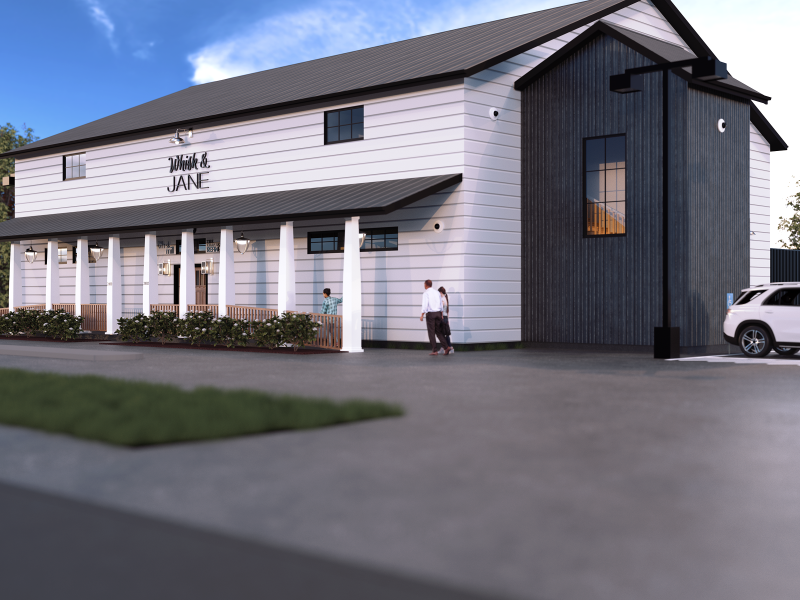Couple hopes to start cannabis business with production, social consumption lounge
Ericca and Justin Kennedy presented their plans for Whisk & Jane, a cannabis microbusiness, to the public at a meeting on Friday.
Whisk & Jane, which would be located at the site of the old pharmacy at 2400 Cranberry Highway, would include three smaller businesses: Green Lion Craft Cultivation, which would cultivate unique strains of cannabis; Cranberry Refinery, which would sell some cannabis products but not loose flower; and the Whisk Mill, a social consumption lounge that would serve cannabis products alongside food and non-alcoholic drinks.
Ericca Kennedy said the pair began planning the business last year, when they applied for and received Economic Empowerment status, giving their application priority. The Economic Empowerment program was created to benefit those from communities who have been disproportionately impacted by high rates of arrest and incarceration for marijuana and other drug crimes.
Applicants must meet three of six criteria: a majority of owners live in areas of disproportionate impact; owners have previously worked in economic empowerment; at least 75 percent of employees will live in areas of disproportionate impact by the first day of business; at least 51 percent of employees have drug-related CORIs but are otherwise employable; a majority of ownership is made up of people from Black, African American, Hispanic, or Latino descent; or owners can demonstrate past experience in areas related to economic empowerment.
As Economic Empowerment applicants, they also qualify to apply to be one of the first businesses allowed to host a social consumption lounge.
At the Whisk Mill, guests would be able to enjoy cannabis products on site, but the Kennedy’s business plan includes a number of safety provisions. Every customer would be required to sign up online in advance and be picked up and dropped off by a car service operated by Whisk & Jane. All servers would receive training, similar to that of bartenders, to avoid over-serving patrons, and there would be a licensed nurse on site at all times. No alcohol would be served.
Safety is something that Whisk & Jane would focus on throughout the business, with a number of security checks before customers could purchase products. Customers would not be able to walk into the Whisk Mill to consume cannabis without a prior reservation, and the company’s security would make sure no one was consuming cannabis elsewhere on the property.
Green Lion Craft Cultivation would create specific, licensed strains of cannabis that would be exclusively available at Whisk & Jane. The cannabis grown on-site would then be processed by another Economic Empowerment business — the only element of the business to be outsourced.
Because the company would be a microbusiness, a category delineated in Massachusetts law, the Cranberry Refinery will not sell loose flower, but it could sell pre-rolled joints, vapes, edibles, and other products.
The Kennedys estimate that their business would first employ forty people and grow from there. As parents of two children, they are committed to paying their employees a livable wage alongside bonuses and family benefits.
In her presentation, Ericca Kennedy said that Whisk & Jane is committed to giving back to the community above and beyond what is required.
Among their ideas are funding free swim lessons open to all kids in Wareham, working with the Onset Bay Association and Cape Verdean Association, and committing to 100 “community impact” hours each year, devoted to education and outreach, including entrepreneur training, end-of-life comfort training, and holistic care for veterans.
They also want to work with other local business to focus on responsible and empowering practices.
Among the fifteen or so people who attended the workshop, there were some concerns about zoning and the legal process allowing for the business to be established in Wareham which already has several host agreements. According to Kennedy, the pair has worked with the planning department to make sure the business is in an appropriate zoning district, and under state law, each town can have one microbusiness.
One attendee asked about the smell, but Kennedy said they will be installing an H-VAC system that would filter out all smells. Because the current building at that location isn’t structurally sound, they would be building a new structure from the ground up.
















